Research Area
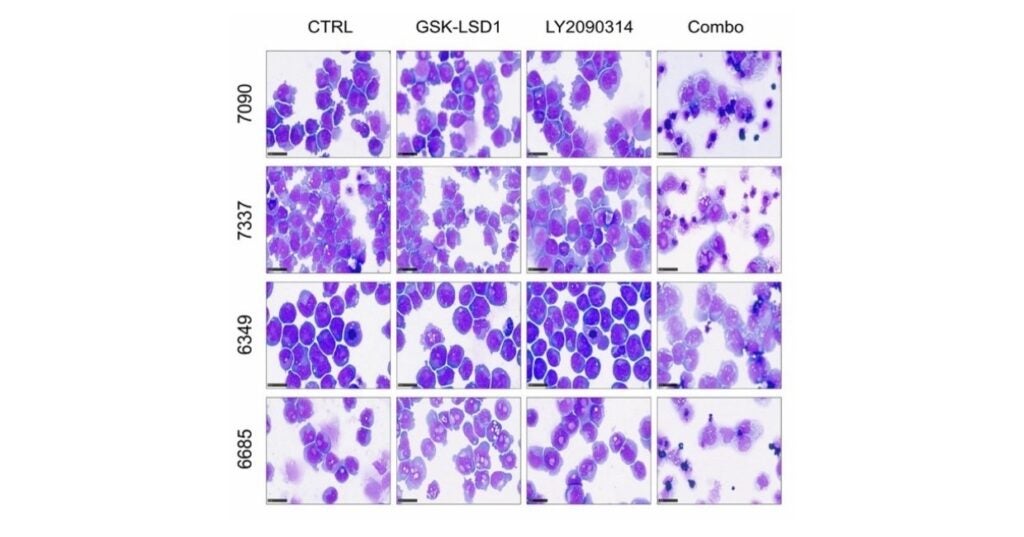
New Study Identifies Promising Inhibitor Combination for Hard-to-Treat Leukemia Subtypes
Faculty In This Story Assistant Professor of Biomedical Sciences M. Andrés Blanco, PhD, from the University of Pennsylvania’s School of Veterinary Medicine (Penn Vet) and investigators from the Universities of…

Study shows promise for iNKT cell platform to treat cancer (link is external)
Researchers from the School of Veterinary Medicine and Perelman School of Medicine have shown that invariant natural killer T cells from a healthy donor can persist in MHC-mismatched canines, demonstrating…
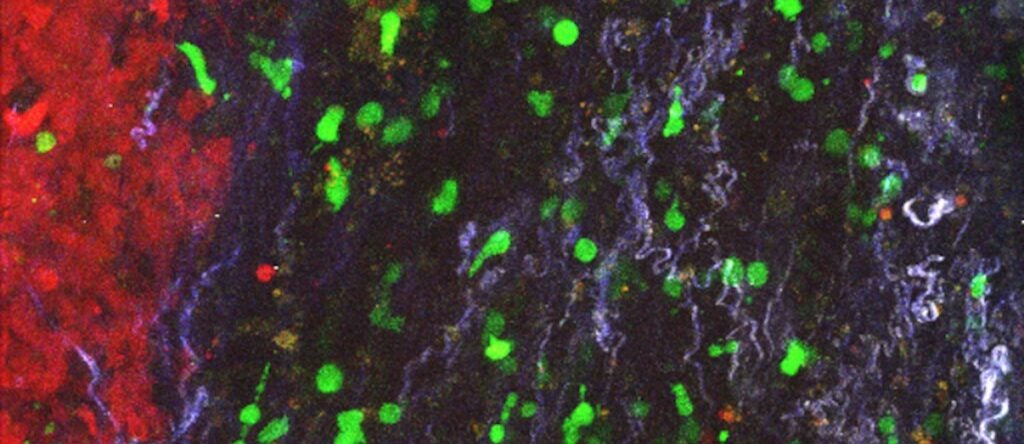
Removing the barrier surrounding solid tumors clears path for T cells (link is external)
Penn researchers uncover a new way to target solid tumors. Using CAR T cells to remove cancer-associated fibroblasts surrounding pancreatic tumors allows T cells to infiltrate and attack the tumor…

Genetic switch turns tumor suppressor into oncogene in colorectal cancer (link is external)
Researchers from the School of Veterinary Medicine have shown that an enzyme that suppresses early-stage colorectal cancer switches to become an oncogene as the cancer progresses.
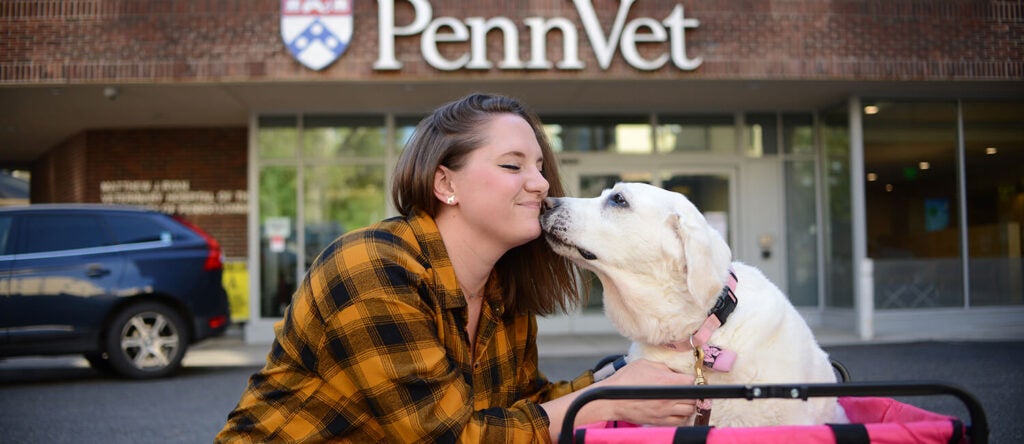
A FLASH of radiation may lead to new cancer care for people and pets alike (link is external)
Led by the Perelman School of Medicine’s Keith Cengel and the School of Veterinary Medicine’s Brian Flesner, a new study is evaluating the safety and efficacy of treating oral cancer…
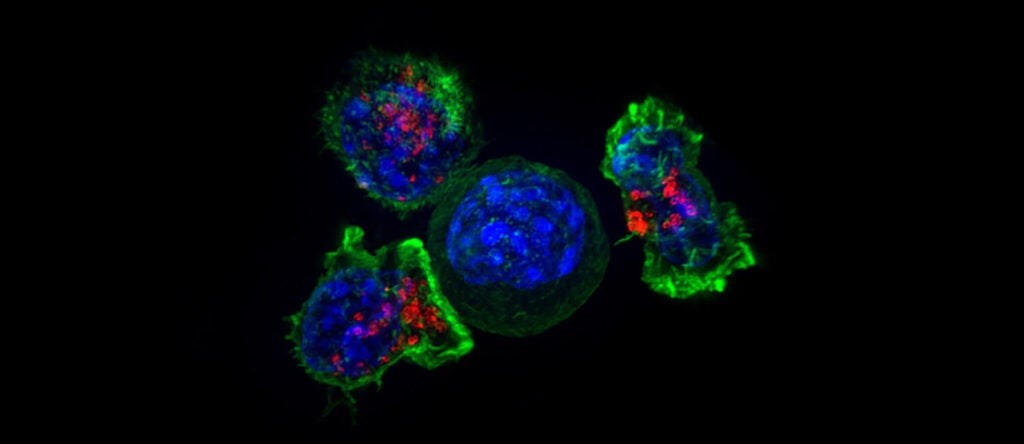
T cells that ‘nibble’ tumors unwittingly help cancer evade the immune response (link is external)
Penn Vet have uncovered a detailed mechanism by which tumors can skirt both the immune system and cancer therapies that leverage its power.
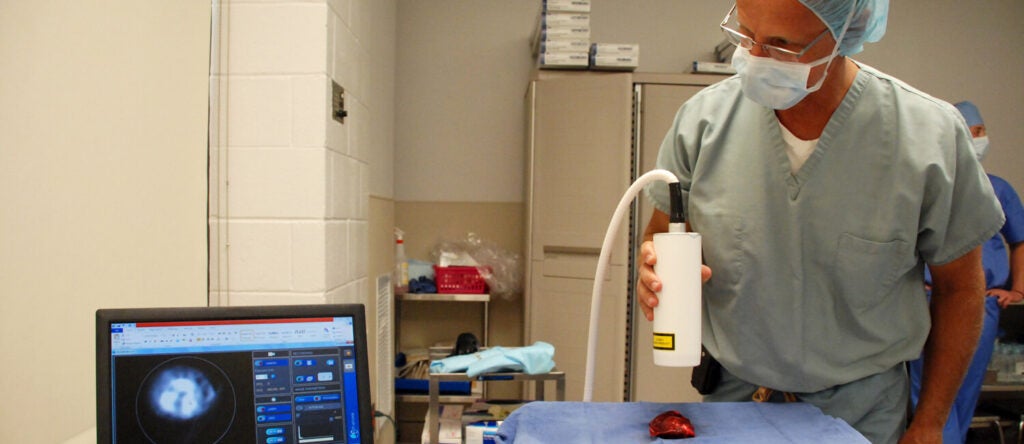
Glowing dye may aid in eliminating cancer (link is external)
“Clean margins” are a goal of cancer excision surgery. If even a small piece of cancerous tissue is left behind, it increases the likelihood of a local recurrence and spread…
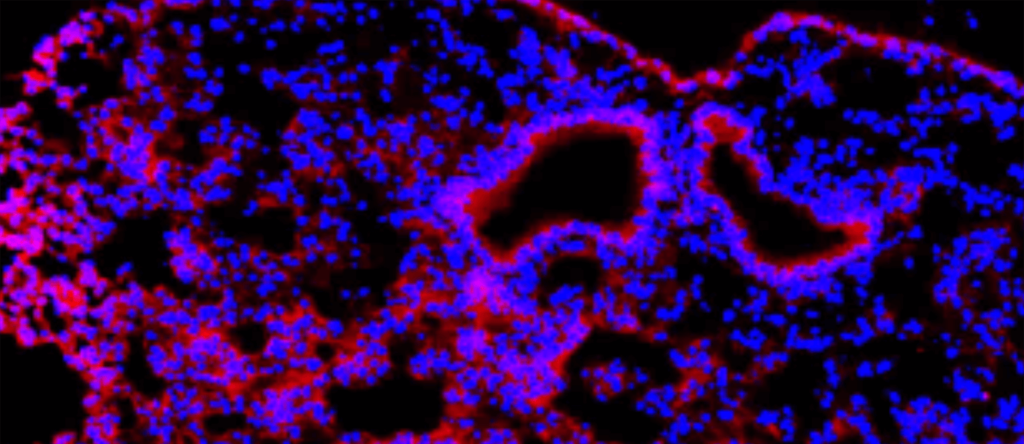
Blocking tumor signals can hinder cancer’s spread (link is external)
For most people who die of cancer, the spread of the initial tumor is to blame. “Metastasis is what kills most cancer patients,” says Serge Fuchs, a professor in Penn’s School of…
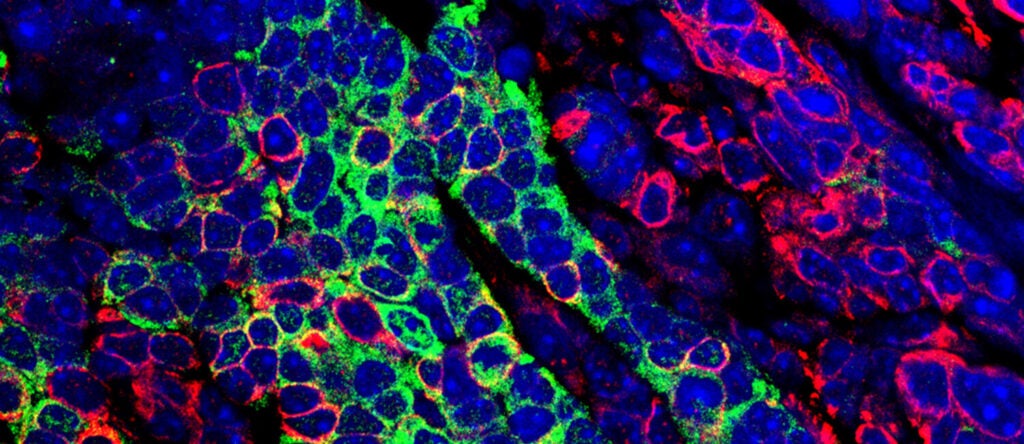
Tailoring treatment for triple-negative breast cancer (link is external)
Immunotherapies have revolutionized treatment for people with a variety of cancers. But when given to those with triple-negative breast cancer (TNBC), a particularly aggressive form of the disease, less than…
